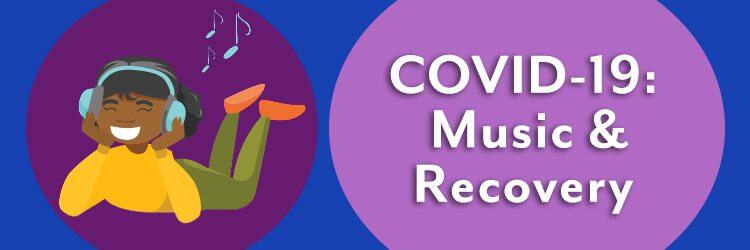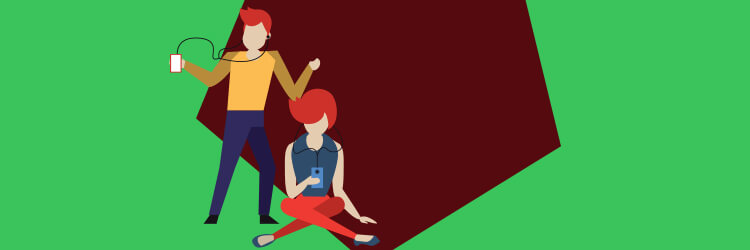[vc_row][vc_column][vc_column_text]When I was a year sober, I started teaching myself to play drums. I’d wanted to learn for years, but drums have a lot of moving parts. Learning them requires focus, patience, and a clear mind—things I didn’t have much of when I was in active addiction.
I first learned by playing music with friends who had instruments. It was a way to be social without alcohol. Drunk people often think they are making big connections with those around them. But those connections are surface, and sometimes even forgotten the next day. Playing music with people—but also listening to and sharing music—creates a really specific kind of connection that can be life-changing.
I’ve grown close to new friends by sharing music and bands with them. Music connects us to ourselves and each other. This is particularly important during the COVID-19 crisis. Many of us are feeling a lot at once. Listening to or making music is a healthy outlet to process those emotions.
And during social distancing, connecting over music can make us feel less isolated. Throughout the crisis, I have made playlists and shared them with some friends. It’s a way to cope with my own onslaught of feelings—and to share that experience with others. A lot of our emotions are nuanced and hard to describe verbally, especially now. Sometimes a song can capture them much better.
Music promotes empathy and interconnectedness. One study split children into two groups, each of which spent a year participating in activities encouraging interaction and imitation. Kids in the group that also involved music exhibited more empathy at the end of the year. Another study found that people with higher empathy had more activity in the brain’s reward centers when listening to music. Music begets empathy—and in turn people with higher empathy get a lot of pleasure from music.
When you listen to music you love, you get a dopamine rush. Music activates the reward pathways in the brain that help us derive pleasure from things like eating, socializing, and falling in love. The point of these pathways is to make us want to seek out these (usually) healthy activities more.
But chronic use of substances overtakes the reward pathways, causing dopamine imbalances. If you’re newly sober, your dopamine may still be off balance. Music can be a way to start healing.
Recently, my bandmates and I met up—outside and standing six feet apart. We talked about how much we miss being able to play songs. Even though we aren’t practicing,, I realized that we’ve been sharing music with each other the whole pandemic.
Every few days, one of us will share a song in the group text message thread, or a video of someone playing in a way we think is cool. Through social distancing, people have continued making music. Lots of musicians have streamed quarantined live performances Some of my friends have performed shows through Instagram or Facebook live.
Music is never going anywhere, because it’s an essential part of being human. Especially now—when we are going through a crisis—it’s also an essential part of healing.
At TruHealing Centers facilities in Georgia, we provide sound healing, a type of therapy that uses music and sound to enhance recovery. And at all of our centers across the country, we provide high-quality treatment for substance use and co-occurring mental health disorders. Our staff—many of whom are in recovery themselves—will help you work through traumas, build coping skills, and create a life in long-term recovery. Call an admissions specialist at 410-593-0005. [/vc_column_text][/vc_column][/vc_row]









